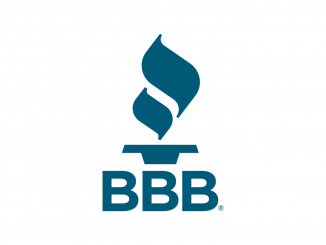
by Kenneth Surbrugg, Director of the Center for Entrepreneurship at Missouri Southern State University
Whether you are planning to start a business, or you currently own one, the following points can help you not only survive, but succeed.
1. Plan. Plan. Plan.
Take the time to write a business plan. The plan will provide you with a guide to help you manage your business. During this process, you will set goals that help you focus your efforts.
2. Identify your target market.
Who are your best customers? There may be several groups of these people. There’s a general rule of thumb that states that 80% of your sales will come from 20% of your customers. What are their levels of income, education, occupations, and interests? What about new potential market segments of customers.
3. Listen to your customers.
What products or services do they want? What is important to them (e.g. a drive-thru window, delivery service, extended store hours, a website to order from)? How do customers compare your business to the competition? Remember to focus on your customers’ wants and needs.
4. Research your industry.
What are the future trends in your industry? Is the size of the potential market for your goods and services growing? Is your industry meeting customer needs? Are there new technological innovations that will replace or greatly enhance your industry? Examine sources of information from the Internet and trade associations.
5. Check out your competition.
Find out who your direct and indirect competitors are and what type of products and/or services they offer. Don’t forget about online competition. What are your competitors’ advantages and disadvantages? What is your competitive advantage relative to your competitors? Use your strengths to compete.
6. Make certain that you have financial statements and that you understand them.
By examining your company’s financial statements, you will be able to know if your business is actually making a profit and how you can plan for the future.
7. Develop a budget and cash flow projection.
Try to plan for your company’s future expenses and expected sales. Make certain you will have adequate cash to operate your business with, and try to plan for unexpected contingencies that may increase your expenses or decrease your sales.
8. Analyze your expenses.
Consider how you could reduce your expenses without lowering the level of service your customers expect. How can your company be more efficient?
9. Analyze your inventory.
Do you have products customers want to buy? Do you have too much inventory? Is your inventory old and out-of-date?
10. Have a good accountant to help you with tax planning.
Don’t wait until you are preparing to pay your taxes this year before considering how you could have saved money on them.
11. Have a good attorney.
Get good advice about the form of business you should have (i.e. limited liability company, sole proprietorship, etc.), contracts and potential problems to avoid.
12. Have a good insurance agent.
Are you insured? Protect yourself, your employees, and the assets of your business against loss.
13. Have a marketing plan and budget.
What media does your target market use when looking for information about the types of products or services you sell? Which social media platforms are being used? What about traditional media outlets?
14. Train your employees.
Never assume that the people you hire know how you want your customers to be treated. Train them how to answer the phone, greet customers, answer questions, deal with suppliers, deal with safety issues, etc.
15. Network with other business professionals.
Consider participating in the programs and committees at your local Chamber of Commerce, civic organizations, and trade associations. This is a good way to meet other business professionals who may be able to give you key advice about operating your business or refer customers to your business.
16. Maintain your online presence.
Make sure that your website and social media pages are up to date. Do you have current pictures posted and accurate phone numbers and addresses? How is your business found using search engines? Is that information accurate?
17. Get assistance from government-funded or low-cost programs.
The Missouri Small Business Development Center (SBDC) at Missouri Southern State University provides business counseling and training to help both existing and start-up businesses. The Missouri Procurement Technical Assistance Centers (MO PTAC) provides counseling, computerized bid matching, and other services for companies interested in selling to federal, state, and local government entities.








Be the first to comment